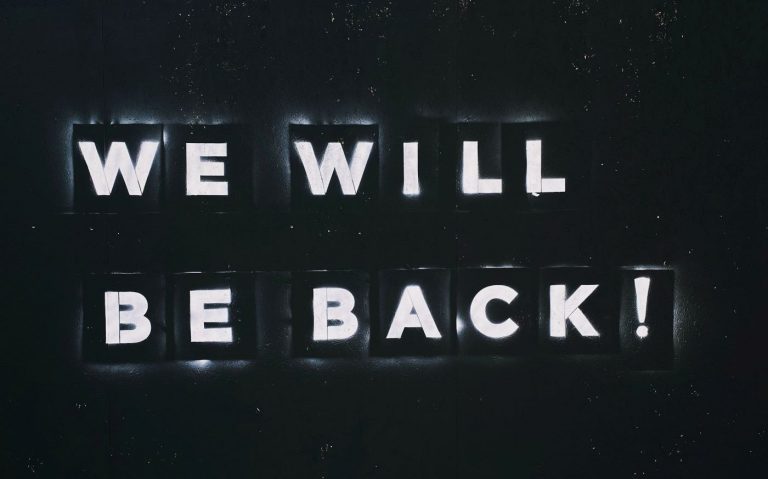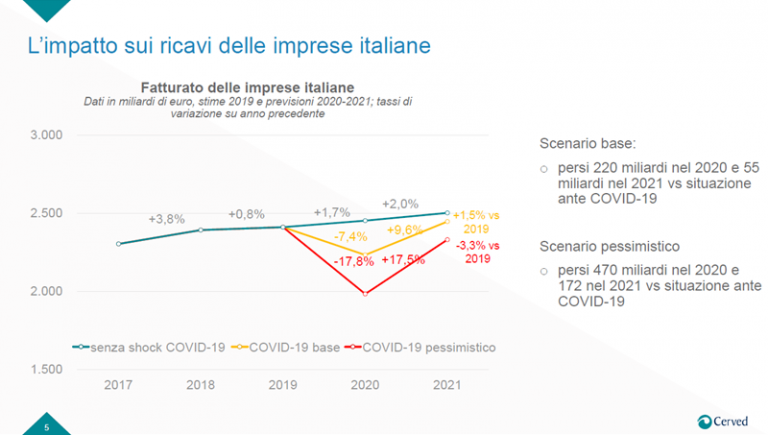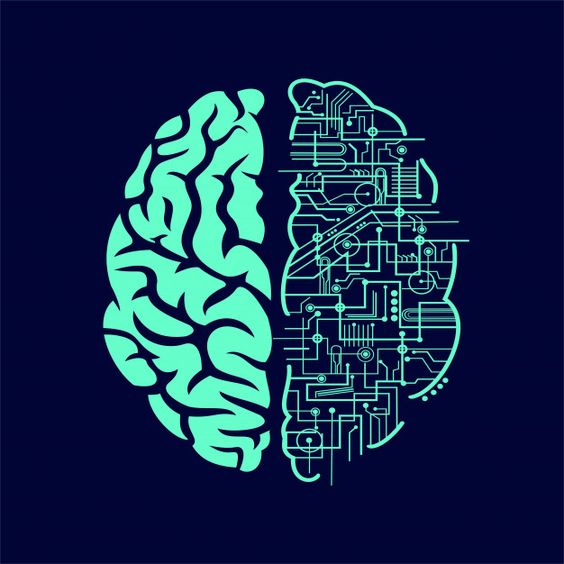#PostCovid Let's look at innovation
When the storm ends
Many companies have closed, and others will close, but for those who remain standing, are the recovery prospects short-term or long-term?

When one day, in history books, the Covid-19 pandemic will (likely) be read about, the story that will be told might resemble one of adaptation and ingenuity.
Not because this pandemic hasn't been devastating, with its current 890,000 victims worldwide. But because—according to initial predictions—the number of victims was expected to be several million.
What, then, unexpectedly allowed this seemingly unstoppable pandemic to be contained and limited? Humanity's ability to adapt.
Let's pause to think: it's been about 7 months since the start of this pandemic. Doesn't it feel like yesterday?
After some initial resistance, which is also typical of human nature, we got used to it: wearing masks, greeting without physical contact, giving up restaurants, nightclubs, and public gatherings.
Some poetically define it as resilience, but in the end, it's nothing more than the ability to adapt.
Perhaps the greatest quality of the human race, the one that has allowed the human species to continue to proliferate and grow incessantly for 300,000 years.
At the health level, an absolute priority in recent months, governments and organizations have rolled up their sleeves and reorganized.
Keywords: Prevent and Limit. And we are on the right track; the results have even exceeded initial expectations.
Of course, not all countries were able to react and reorganize with the same promptness and effectiveness in the immediate aftermath.
Covid-19 has exposed the deep shortcomings of national healthcare systems. And so, in countries like ours, which had many shortcomings, we paid a significantly higher price initially compared to others, like Germany, which had far fewer gaps.
A sort of "Pandora's Box" effect.
Exactly. The Pandora's Box has been opened at the healthcare level, just as it has at the economic level, in reality.
Our country was already facing a significant gap compared to many other Western countries and those in the eurozone. And this gap is causing us to pay a higher price than other economic systems that could rely on "broader shoulders."
The economy has also fallen ill due to the coronavirus.
And certainly, as in the case of the countermeasures that governments have had to adopt to contain infections and limit casualties, the impact on the economy will depend on the speed with which effective measures to support consumption and employment are implemented.
At the end of March, Cerved analyzed the impact of Covid-19 on Italian companies, hypothesizing two scenarios: best and worst case.
In the best-case scenario, if the pandemic had lasted until May, the lost revenue for businesses would amount to 275 billion euros over the two-year period of 2020-2021.
Significantly heavier are the estimates of the second scenario. In this case, the health emergency would have lasted until December, and the impact would have been a loss of approximately 641 billion.

And unfortunately, we find ourselves in this second scenario.
A global economic shock. The virus has crossed every border, every continent, infecting people and economies.
Some economic sectors have experienced a golden age in recent months. Sectors such as eCommerce and Logistics, which the Covid-19 pandemic has gifted with double-digit revenue growth.
Others, unfortunately also our flagship sectors, such as Tourism and Transportation, have suffered an unprecedented crisis.
But the question we ask ourselves now that the storm is passing is: What will become of us? Will the economy recover?
It is still difficult to answer such questions; this pandemic is constantly evolving, filled with unknowns and uncertainties.
Arm yourselves with determination and willpower..
So what do we do from now until 2025? Is there a way to recover some ground?
Well, we really need to tap into our ability to adapt.
Adaptation does not mean floundering, just staying afloat while being carried along by events.
Adaptive companies, led by Adaptive Leadership, are the ones that ensure their survival because they know how to anticipate, reorganize, and respond quickly to market changes.

Adapting means making change and innovation the values upon which the company culture is built.
And it's not just words printed on paper, perhaps in some Company Policy. It means actions, initiatives, investments.
It means staying updated and updating the skills and competencies of staff, so as to rely on human resources that are motivated, curious, prepared, and open to innovation.
It means embracing innovation and knowing how to make the most of the endless resources that new technologies have to offer us.
It means empowering human resources, triggering cycles of learning and continuous improvement within the company, adopting principles such as Lean Management, for example.
An adaptive company will not only survive this crisis today; it will also thrive in the medium to long term. Because just as it has managed to face this great challenge, it will be even more capable of seizing and anticipating new opportunities for growth and development in the future.
Let's propose an apparently trivial example, but one that is quite effective.
Let's suppose we are facing two retail companies.
Both companies—prior to Covid—had adopted a sales strategy focused solely on physical stores, their retail outlets.
Neither of the two companies had an eCommerce platform; they had barely equipped themselves with a corporate website from which users could perform basic operations and gather information (browse the product catalog, view the price list, send inquiries).
On March 9, the lockdown begins, and both companies are "devoid" of eCommerce, but the owner of one of them is familiar with marketplaces like Amazon because he occasionally shops through these digital stores. He knows very well that no customer will be able to go to the store for who knows how many months.
He has a warehouse full of products, but the risk is that they will remain unsold. He gathers his courage and decides to give it a try: he researches, analyzes the platform's features, requirements, and tools, and within about ten days, he is also up and running on Amazon.
He didn't make billions, but he continued to sell his products consistently, clearing out a good portion of his inventory. Additionally, he gained a certain familiarity with eCommerce tools and industry dynamics.
He has now opened his own eCommerce site. He also runs email marketing and SMS marketing campaigns to attract customers who are not just local but also regional and national.
The other company? It is still counting the losses in revenue.
"The future influences the present as much as the past."
Friedrich Wilhelm Nietzsche
Now more than ever, we must let ourselves be influenced by the future.
We often view the innovation that surrounds us with skepticism, admiring its potential and functionality, but keeping just enough distance to avoid "taking the risk" in these unknown lands.
Choosing to change, to innovate, may initially be difficult due to fear of the unknown and potential negative consequences: the uncertainty in the face of the unknown paralyzes us.
But in a situation like this, we cannot afford to wait for the "right moment" to take risks; we no longer have time.
Not only do we not have time to adapt to the innovations that already surround us and that we struggle to adopt, but we must also find the courage and will to anticipate changes.
Perhaps now more than ever, we need to dare. Maybe today it’s better to make mistakes than to not try at all; because—by staying still—we risk falling too far behind, too isolated in the quagmire of the crisis.
If we dare to envision our new future, each "today" will be like placing a piece to reach

Technology is the lifeblood we need.
Now you need to ask yourselves what your business needs.
Sales? Visibility? Data analysis and insights? Automation? System integration?
All that's left is to choose the tools that will be your new driving force: eCommerce, Loyalty Programs, Social Networks, Mobile Apps, Outbound Marketing, SMS/Email Marketing, ChatBot integration…
All you have to do is choose the right one to unlock your business and start again with an extra boost!
